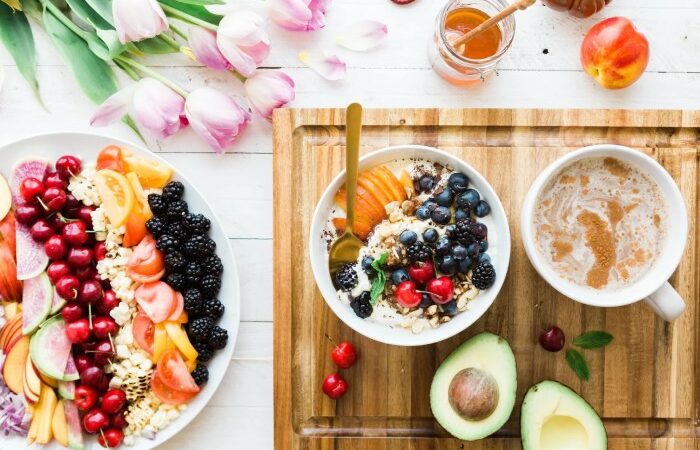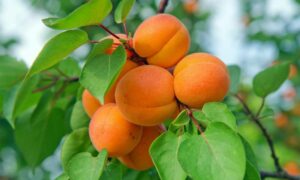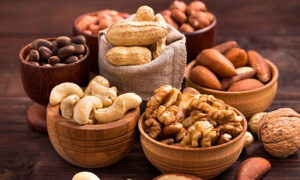Fruit is an important part of maintaining a healthy lifestyle. With the rise in popularity of low-carb diets, you may be asking what fruits you can consume on keto. Fruits may be high in vital vitamins, minerals, and substances with powerful health-promoting properties, but they also contain a lot of sugar.
The main goal of the keto diet is to keep your carbohydrate consumption to a bare minimum in order to establish and maintain ketosis. This is a metabolic condition that can help you lose weight and regulate your blood sugar levels.
Doesn’t this seem like an impossible task? Certainly not. You may gain the health benefits of fruits without overeating in carbohydrates and risking your health and fitness objectives if you make the correct selections. To assist you stick to your keto diet, we’ll go through which fruits have the least amount of carbohydrates.
1. Avocados –
Avocados can be readily added to salads, mashed on toast, or combined into guacamole because of their rich, creamy consistency and subtle flavour. They have a great nutritional value, as well as a very low sugar content. Half a cup of sliced avocado has almost 10 g of fat and only 3 g of carbohydrate, making it an excellent complement to your keto diet.
Avocados are high in prebiotic fibre, potassium, and unsaturated fats, all of which are good for you. Regular consumption of this creamy fruit, according to a review published in the Nutrients journal, may assist to reduce the risk of cardiovascular disease, improve cognitive function in some people, and contribute to better gut health in overweight or obese adults.
2. Blackberries –
Look no farther than berries if you want to reduce your sugar intake while still getting the necessary nutrients that fruit delivers in abundance. There are several types that might meet the tight requirements of a keto diet, but blackberries may be the best option. Only 3g of carbohydrates and roughly 4g of dietary fibre are found in half a cup of these slightly sour black fruits.
Potassium, vitamin C, vitamin K, and a variety of antioxidants are all abundant in blackberries. Multiple studies have indicated that eating these fruits on a daily basis can help prevent cancer, age-related neurodegenerative diseases, and bone loss.
3. Raspberries –
One cup of these berries contains 8 g of dietary fibre and more than 50% of the Daily Value for vitamin C while containing less than 7 g of carbohydrate. Raspberries are also abundant in bioactive chemicals that may be beneficial to one’s health. Regular consumption of these could be a beneficial tool for treating obesity, cardiovascular disease, and type 2 diabetes, according to a review published in the Advances in Nutrition journal.
4. Strawberries –
These red fruits, though richer in carbs than their berry counterparts, can nevertheless be consumed on a keto diet. A cup of strawberries provides more than 3 grammes of dietary fibre and 9 grammes of carbs, as well as a significant amount of micronutrients such as iron, copper, magnesium, vitamin C, vitamin K, and potassium.
Strawberry consumption can help lower systemic inflammation and blood sugar levels, according to a comprehensive research published in Critical Reviews in Food Science and Nutrition.
5. Blueberries –
Blueberries are one of the sugariest fruits in the berry family, but they’re also one of the healthiest, so they shouldn’t be excluded from your keto diet. If you want to keep your sugar intake modest, half a cup contains roughly 9g of carbohydrates, so eat them in moderation.
Blueberries, on the other hand, are a nutritional powerhouse, containing numerous vital micronutrients like vitamin C, vitamin K, and manganese. But it’s their high phytonutrient content that sets them apart. Multiple studies have found that these chemicals have substantial antioxidant and anti-inflammatory qualities that can help prevent obesity, type 2 diabetes, and cardiovascular disease, as well as enhance gut health and potentially slow the ageing process.
6. Rhubarb –
If you want to limit your carbohydrate intake, this fruit is a fantastic option. One cup of diced rhubarb has only 4 g of carbohydrate, but provides about 2 g of dietary fibre and a large quantity of vitamin C and vitamin A.
Furthermore, researchers have begun investigating the possible health benefits of emodin, a highly bioactive chemical found in rhubarb. Emodin from rhubarb has powerful diuretic, antibacterial, antiulcer, anti-inflammatory, anticancer, antimalarial, and antiallergic activities, according to a review published recently in the International Journal of Molecular Sciences.
7. Watermelon –
Watermelon is one of the most refreshing foods on hot days. The fruit is also an excellent addition to ketogenic diets due to its low sugar content and high nutritional value.
A cup of diced watermelon has about 12 g of carbohydrate and a variety of critical micronutrients such as vitamin C, potassium, copper, and vitamin A. These red fruits can help us maintain our cardiovascular health and fitness if we eat them on a regular basis. Watermelons have comparatively high levels of chemicals called L-citrulline and L-arginine, which have been shown to lower blood pressure and enhance blood flow, according to a recent analysis published in Current Atherosclerosis Reports.
8. Kiwi –
Because most exotic fruits are high in carbohydrates, they are difficult to include into a keto diet. Fortunately, there is an exception: kiwifruit. One of these fruits contains about 7 g of carbohydrate, as well as fibre, vitamin C, phosphorus, and potassium. According to new research, kiwis may protect against certain cancers, particularly those that affect the lower gastrointestinal system.
9. Tomatoes –
With only 3.3g of carbohydrates in a medium-sized tomato, these red fruits can help you control your sugar intake. Tomatoes also contain considerable amounts of beta-carotene, vitamin E, vitamin C, vitamin K, and folic acid, making them a nutritious food staple.
Tomatoes have also gained popularity as a result of their high antioxidant content, particularly lycopene. Lycopene has been demonstrated to protect against dying from coronary heart disease, cerebrovascular disease, and cancers such as prostate and stomach cancer, according to a review recently published in the Food Chemistry journal.
Fruits To Avoid On Keto –
Cherries –
Cherries, like many other fruits, contain a large quantity of sugar. While these red fruits are sweet and nutritious, half a cup of them contains more than 10 grammes of carbs.
Peaches and nectarines –
It will be challenging to include peaches and nectarines into a ketogenic diet. Around 13g of carbs are found in one medium fruit.
Pears with apples –
Apples and pears go well with oatmeal in the morning, but if you’re on a keto diet, you may need to replace other fruits. A medium apple contains roughly 23 grammes of carbs, but a medium pear contains nearly 20 g.
Oranges, mangoes, pineapples and bananas –
The high sugar content of exotic fruits is well-known. One medium banana or a cup of diced mangoes, for example, can provide up to 26 g of carbs, while two slices of pineapple can provide more than 12 g. Oranges should also be avoided because one medium fruit can contain up to 15 g of carbs.
Grapes –
Grapes are difficult to incorporate into a keto diet, so it’s best to avoid them entirely. More than 25 g of carbohydrates can be found in just one cup of this.
- Google Doodle Celebrates King’s Day (Koningsdag) 2025 - April 26, 2025
- NCAA DIII Men’s Volleyball Championship 2025: Full Bracket, Schedule, and Scores - April 26, 2025
- NCAA DII Men’s Golf 2025: See the Complete List of Regional Selections - April 26, 2025





